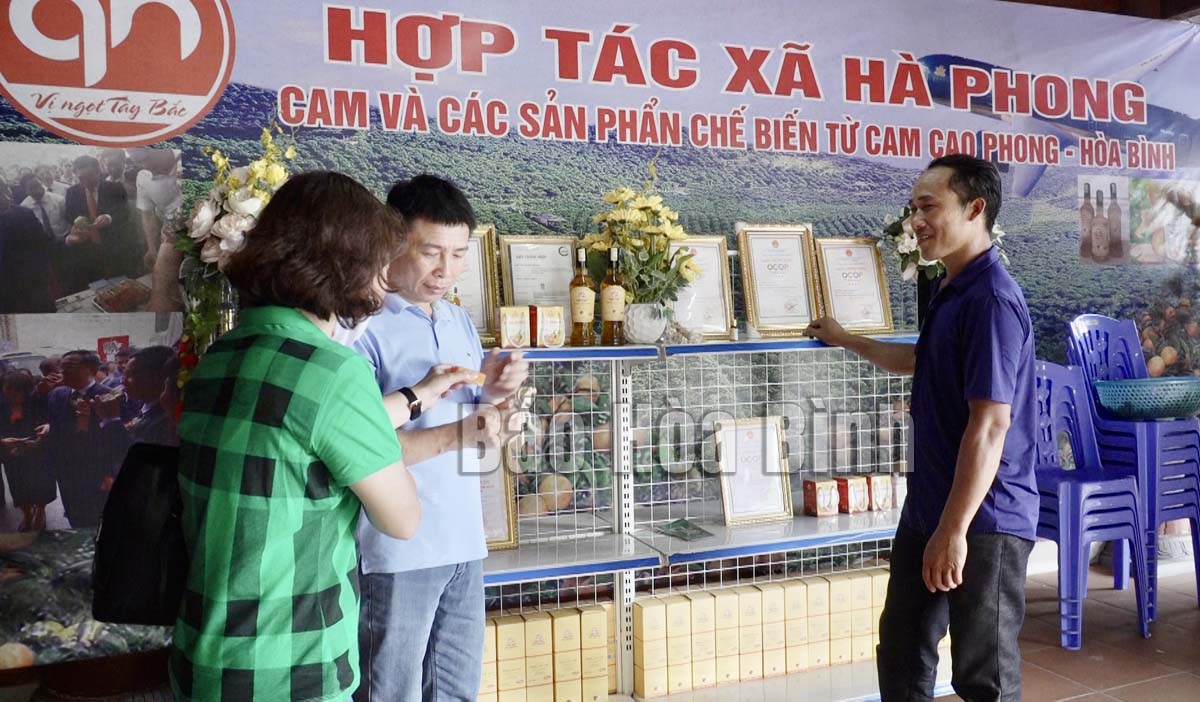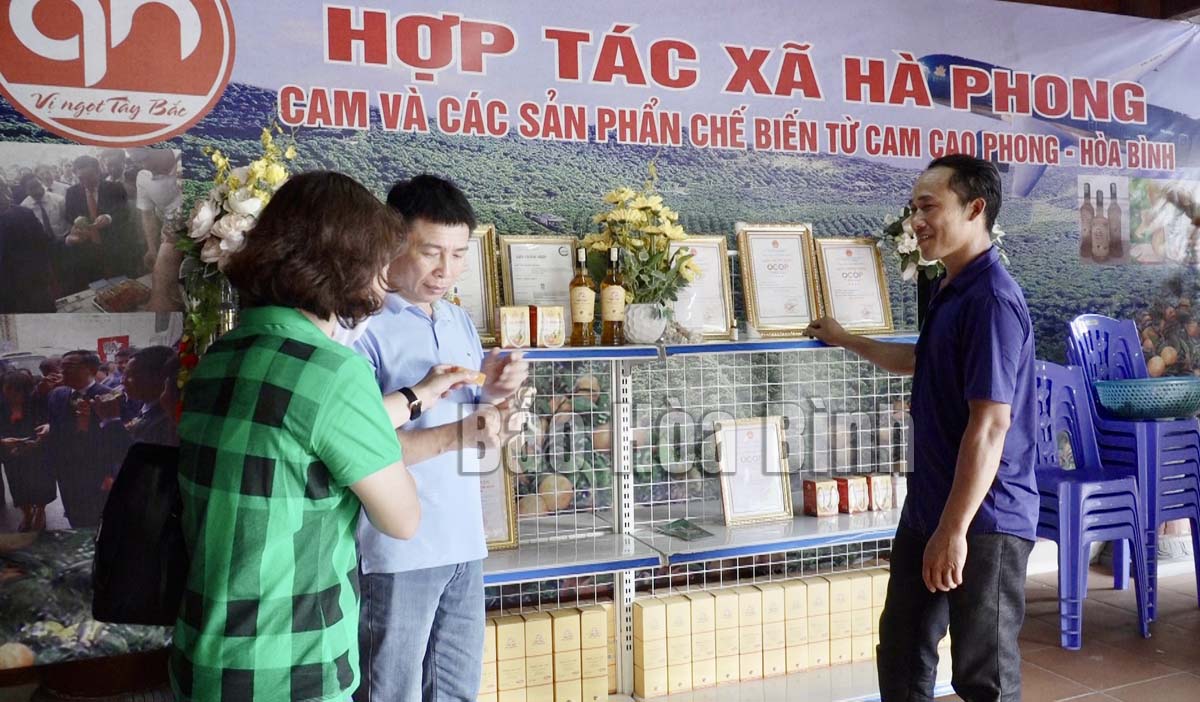



OCOP products of the province have been creating trust among consumers. Photo taken at Ha Phong cooperative, Bac Phong commune (Cao Phong).
The product story is the message that OCOP wants to convey to the community and consumers in order to change their emotions when buying products and services, creating a brand. It carries the intangible value, however, it can touch the emotions and hearts of consumers, change the customer behavior. Each OCOP’s product story contains the pride, imprint, and traditional values of each land.
Recently, the Department of Agriculture and Rural Development has many solutions to implement the OCOP Program. The Department has coordinated with the consulting units, the People's Committees of the districts and the city to assist subjects in selecting the potential products to register for the program, guiding how to complete the dossiers, standardizing the products participating in evaluation and classification. The consulting unit always cares and guides the subject on how to build an attractive, meaningful, close and rustic product story that shows the quintessence and sophistication in production and processing. Each story is short but exudes the soul of the product, exuding the pride of the people for the land they were born and raised in. However, the product story must be true and verified by a competent authority.
Lam rice has long become a rustic dish but it contains the unique culture of the Muong Dong people. In order to write a meaningful product story, Mr. Pham Hong Son, the owner of the 3-star OCOP product of Muong Dong Lam rice, skillfully told the story of the fathers and mothers in Muong from the past to conquer tourists throughout the country. Mr. Son says: According to the elders in Muong, in the past, the people of Muong Dong were still hungry, they often had to go to the forest, go to the fields to dig up cassava roots and grinded tubers to eat, so they had to go from dawn to the sunset, they even slept in the woods. Therefore, they had to bring food such as rice and sesame salt to eat. As they couldn't bring cooking utensils, they chose a bamboo tree, a tree with water inside, and then they put rice and cassava in it and baked it on embers until the outside was golden, then the rice inside the tube would well-done. When eating rice, there was a sweet, fleshy taste and a very characteristic aroma of bamboo, so people called it Lam rice.
Today, when the life of the Muong Dong people has changed a lot, they no longer make Lam rice when they go to work, but not for that Lam rice is lost. Instead, Lam rice becomes a regular dish in the daily life of each family. At the same time, Lam rice also brings the economic value to hundreds of households in tourism spots and resorts in Kim Boi district such as mineral spring sites and resorts...
Each OCOP product is told with a separate story, the same brocade product but the brocade of the Thai people in Mai Chau district is different from the brocade story of Muong people in Lac Son district. The combination of culture and quality makes a difference in each product story that the OCOP subject represents. The product story is printed on the packaging of each OCOP product, helping OCOP subjects promote and introduce the products to consumers.
According to the Department of Agriculture and Rural Development, in the coming time, in order to help the subjects participating in the OCOP Program, creating the meaningful product stories, all of the levels, the sectors and the localities need to step up propaganda work, arouse the pride of the owners. The organizations and the communities to join hands to preserve and develop typical products; opening the training classes, building a set of lectures for each group of subjects and each group of products; expanding the network of consultants, especially the experts in culture, industrial art, and processing industry when advising OCOP subjects. In particular, it is necessary to strengthen the trade promotion activities, giving priority to and honor the products with good and unique stories, expressing the local identity.